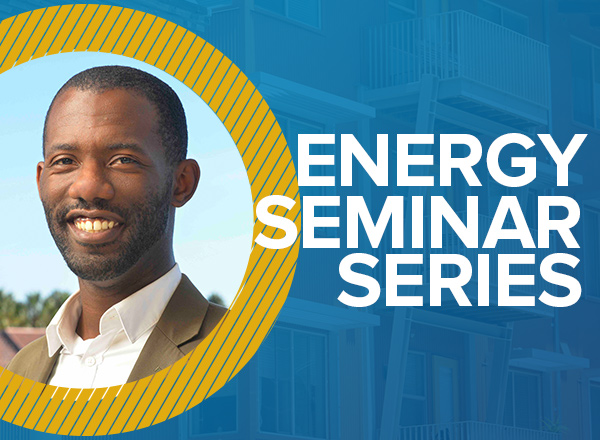PowerTrip Orientation 2024
During their first week on campus, Energy Graduate Group students embark on Power Trip — an immersive orientation program designed to introduce them to the diverse landscape of energy research and policy work at UC Davis and beyond. Through engaging discussions with experts from academia, industry, government, and public interest groups, students gain invaluable insight […]
Electrochemical Wastewater Refining for Circular Chemical Manufacturing

Energy and water are two critical interdependent systems that impact environmental quality and require urgent innovation. Mining critical materials for energy storage requires large freshwater inputs and introduces pollutants to aqueous environments. Treating wastewater and producing potable require substantial energy inputs. Electrochemical wastewater refining, or the generation of tunable product portfolios from waste streams, can […]
PowerTrip Orientation 2022
During their first week on campus, Energy Graduate Group students participate in an orientation program–Power Trip– to learn about the wide variety of energy related research and policy work being conducted at UC Davis and in the Sacramento/Bay area through discussions with researchers and leaders from industry, government, public interest groups, and academia. PowerTrip is […]
PowerTrip Orientation: September 14-17, 2021
During their first week on campus, Energy Graduate Group students participate in an orientation program–Power Trip– to learn about the wide variety of energy related research and policy work being conducted at UC Davis and in the Sacramento/Bay area through discussions with researchers and leaders from industry, government, public interest groups, and academia. PowerTrip is […]
Energy Graduate Group Fall Seminar Series
As part of their education, every Energy Graduate Group student attends a fall seminar series that exposes them to eminent scholars and professionals who are engaged with a wide variety of key energy-related issues at the local, state, national and global level. These seminars are open to the public. Upcoming Events & Seminars EGG Seminar, […]
Orientation Program Blog: Power Trip 2019
In September, UC Davis welcomed its third class of Energy Graduate Group students. During their first week on campus, students participated in an orientation program–Power Trip– to learn about the wide variety of energy related research and policy work being conducted at UC Davis and in the Sacramento/Bay area through discussions with researchers and leaders […]
What EGG Students Have to Say
“My experience in the EGG program has been a positive one. This program has not only given me access to a supportive network of like-minded individuals, but it has also helped me gain experiences that will position me for a successful career in the energy sector. I’m grateful for all of the opportunities that I’ve […]
Orientation Program Blog: Power Trip 2017
In September, UC Davis welcomed the inaugural class of 16 UC Davis Energy Graduate Group students. During their first week on campus, students participated in an orientation program–Power Trip– to learn about the wide variety of energy related research and policy work being conducted at UC Davis and in the Sacramento/Bay area through discussions with […]
Orientation Program Blog: Power Trip 2018
In September, UC Davis welcomed the second class of Energy Graduate Group students. During their first week on campus, students participated in an orientation program–Power Trip– to learn about the wide variety of energy related research and policy work being conducted at UC Davis and in the Sacramento/Bay area through discussions with researchers and leaders […]
Energy Graduate Group Faculty
The EEI has nearly 50 affiliated faculty from departments across UC Davis. These faculty are affiliated with the Energy Graduate Group (EGG). Gwen Arnold Associate Professor, Environmental Science and Policy Co-Director, Center for Environmental Behavior Hydraulic fracturing; regulation and policymaking Shota Atsumi Associate Professor, Chemistry Biofuels Louise Berben Professor, Chemistry Solar fuels; CO2 conversion; hydrogen production Catherine Brinkley […]

